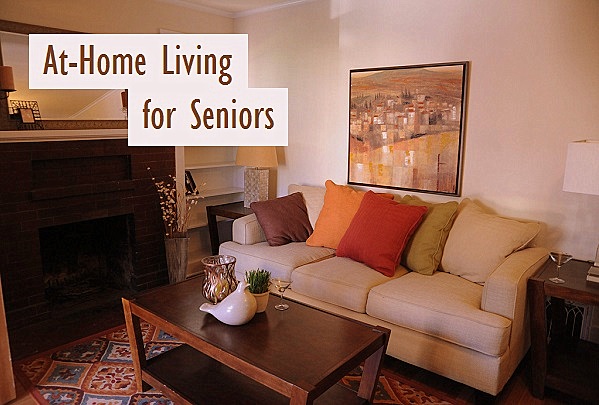Age in Place: Safe At-Home Living for Seniors
Cary, NC — Is it time to make a decision regarding living options for a senior citizen? We want to keep our loved ones, or ourselves, living safely and happily for as long as possible.
90% of Seniors Want to Stay in Their Homes
AARP (formerly the American Association of Retired Persons) determined in a study that 90% of people over 65 want to stay in their own homes and communities upon retirement. Baby boomers will also be joining this increasing “age-in-place revolution.”
According to the MetLife Mature Marketing Institute, of that group, 49% want to stay in their current homes and 38% want to move to new homes. Unfortunately, most of those homes seem to be built for Peter Pan–where no one grows old or needs spacial accommodations. Staying at home is not always the best solution for every senior care situation, especially if the home environment is unsafe or if intensive medical attention is required.
Let’s discuss the safety factor of “aging in place.” In future months, I’ll report on various tools, features, remodeling modifications, and technology to make aging in place possible.
Mobility Issues
Preventative safety is so important! Falling down is the leading cause of death for individuals over the age of 65, according to the AANS, or the American Association of Neurological Surgeons. The top three causes of falling down include:
- Floors or flooring material
- Stairs or steps
- Beds or bed frames
I found it very surprising that eighth on their list is dangerous bathtubs or showers, since an AARP report has bathroom aides (like shower rails) listed as the second to highest desired remodeling feature by seniors.
AARP also identified housing features that seniors find especially important in the later years as they begin to experience reduced eyesight, poorer balance, reduced flexibility, etc., including:
- Safety features such as non-slip floor surfaces (80%)
- Bathroom aides such as grab bars (79%)
- A personal alert system that allows people to call for help in emergencies (79%)
- Entrance without steps (77%)
- Wider doorways (65%)
- Lever-handled doorknobs (54%)
- Higher electrical outlets (46%)
- Lower electrical switches (38%)
Many of these features do not currently exist in most seniors’ homes.
Poisoning
The National Center for Injury Prevention and Control (NCIPC) states that another top cause of home injury for seniors is poisoning. The majority of poisonings in older people are unintentional and may result from dementia and confusion, improper use of the product, improper storage, or mistaken identities.
Seniors need to make sure that their prescriptions are stored and taken correctly not only for themselves, but for others, too. The Alliance for Aging Research concluded that, in 38% of child poisoning cases in the ER, the medicine belonged to a grandparent.
Cognitive State
This brings up the issue of cognitive state. Something as simple as an occasional missed pill, forgetfulness, or another significant cognitive change requires attention now. This US Department of Health & Service lists “what you can do” suggestions for this and for many other senior health literacy topics such as hearing, strength, and visual challenges.
Helpful Links
Driving to the doctor or to get groceries is also important, as safety can sometimes be an issue in doing so. The links below provide useful information about:
- Seniors and driving
- How to take away car keys, if necessary
- Cary’s C-Tran–a great alternative to driving
So, even if a senior citizen can’t drive, aging in place is still possible if other safety considerations are taken care of in their home.
Until Next Time
Each month, I’ll contribute an article about various housing options for seniors. Future discussions will also discuss financial considerations and many tools and modifications possible to improve current homes, new homes, or even your family’s home for a parent or other aging loved one.
————————————————————————————————————-
Nancy Caggia earned her SRES/Senior Real Estate Specialist and works at BHHS YSU Realty. Photo by Wonderlane.
————————————————————————————————————-
Health and Wellness content on CaryCitizen is sponsored in part by Waves of Change, offering counseling, hypnosis and wellness services on Maynard Road in Cary.



